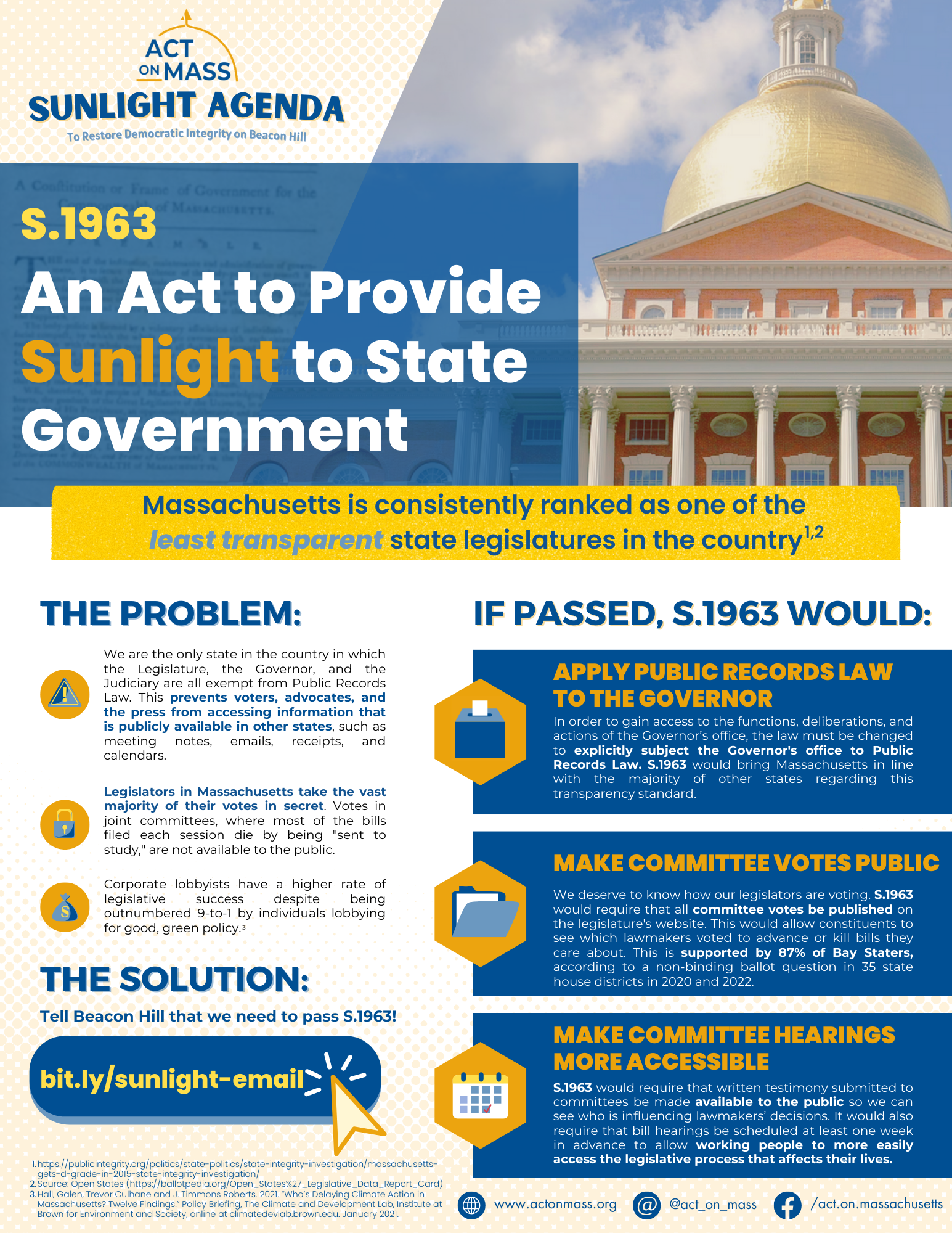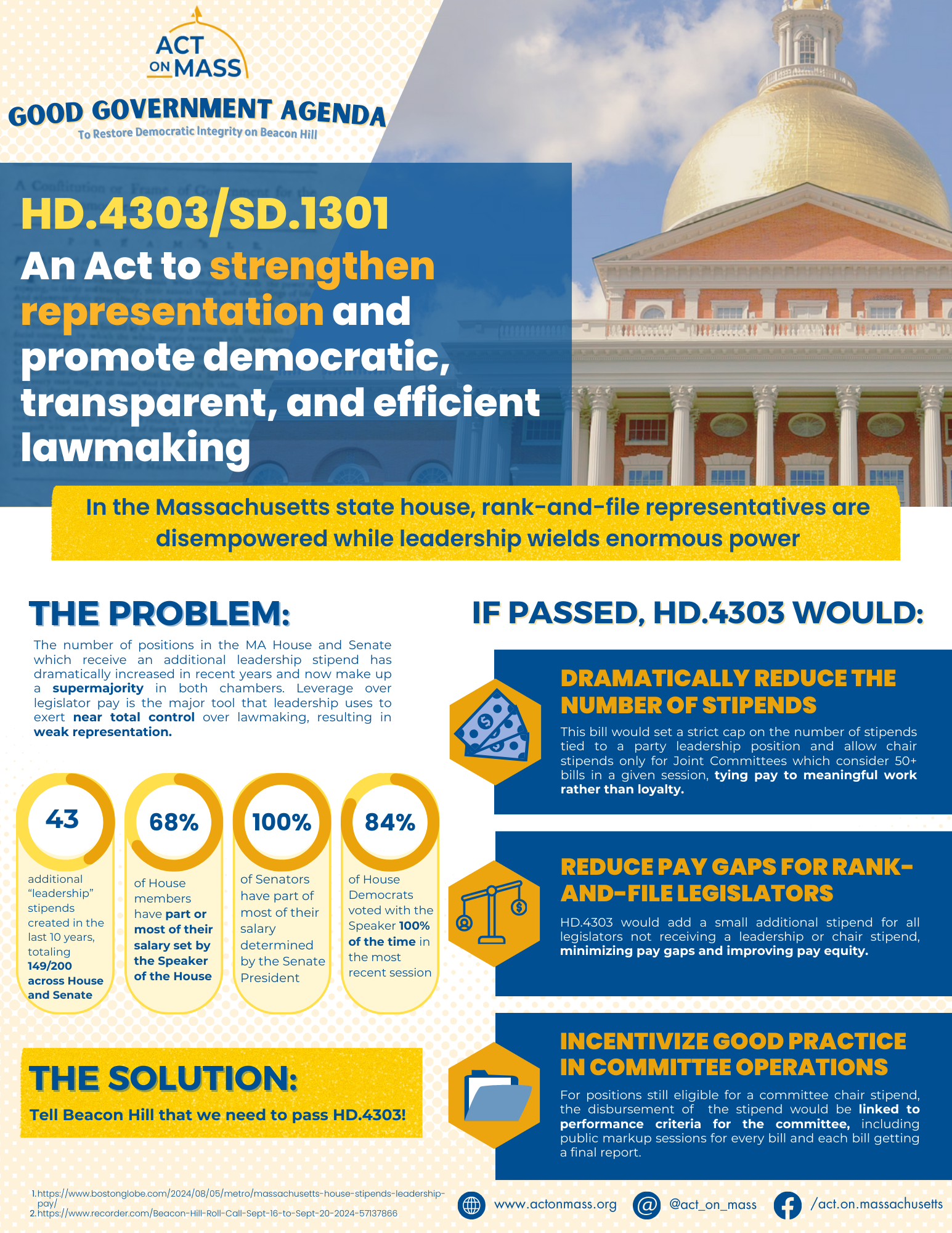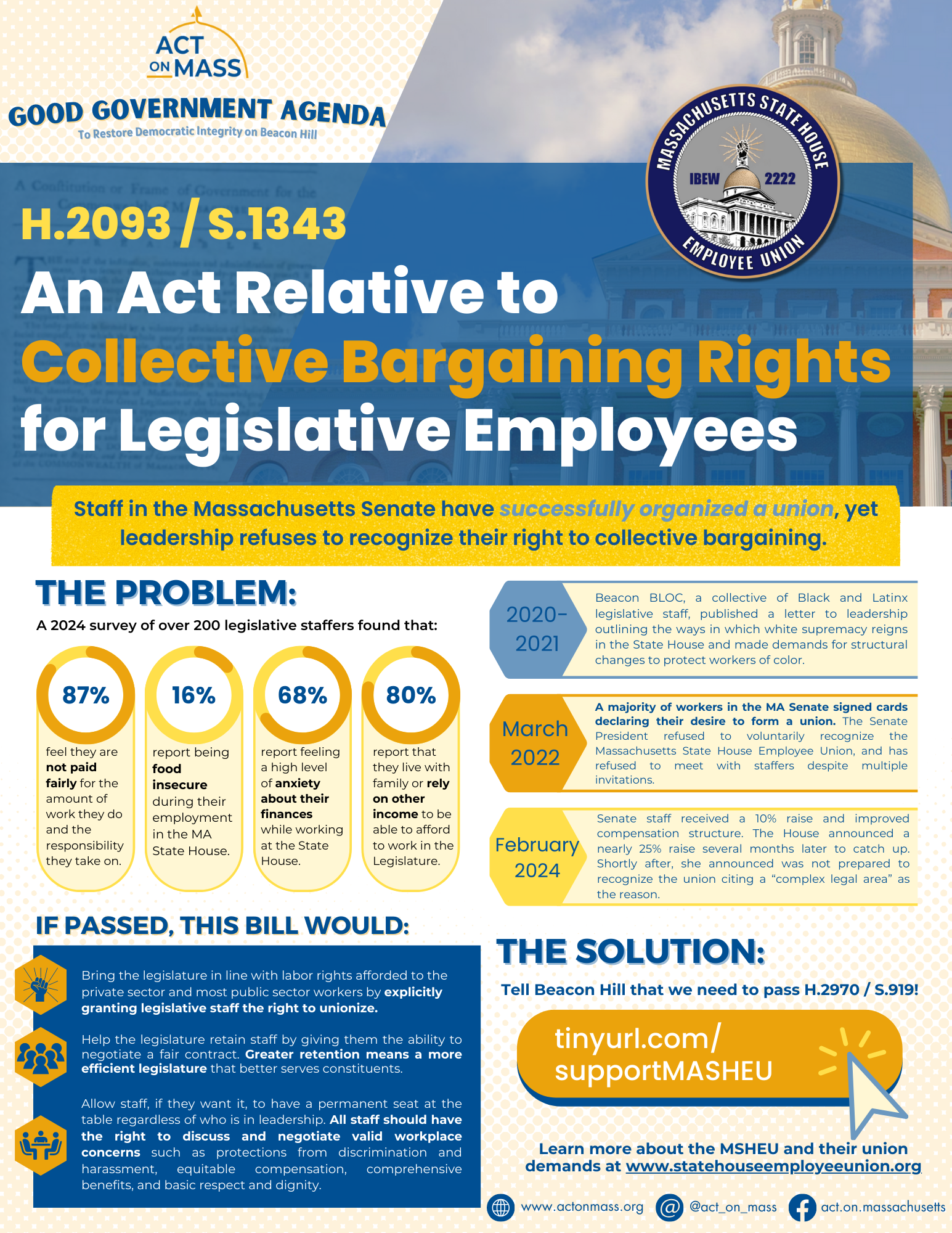

With federal policy undermining our values as a Commonwealth and creating uncertainty for Bay Staters, having a strong and accountable state government is more important than ever. Coming off some potential wins in the House and Senate rules this session, we are keeping up the pressure and expanding our reach with the Good Government Agenda! This slate of three bills will target our top two issues in the state legislature: the lack of transparency and the concentration of power in leadership, which combine to prevent progress and keep the public uninformed and disempowered.
S.2099 An Act to provide sunlight to state government
Sponsor: Senator James Eldridge
This comprehensive bill would take several long-overdue steps to shedding light on the processes of the State House. This bill would codify in MA law that all recorded committee votes to be posted on the legislature’s website within 48 hours of a vote (with exceptions during the last 2 weeks of the session). Furthermore, it would require committee hearings to be scheduled at least two weeks in advance to ensure that folks who have childcare needs, inflexible work schedules, and other barriers to access, are given a chance to participate in the legislative process. Testimony from those hearings would also be made available upon request, with redactions for sensitive personal information to protect individuals. Finally, this bill would require the Governor’s office to abide by public records law (PRL). Massachusetts is the only state in the country where the Legislature, Judiciary, and Governor’s office all claim exemption from PRL.

HD.4303/SD.1301 An Act to strengthen representation and promote democratic, transparent, and efficient lawmaking
This bill would target one of the major levers of power that the House Speaker and Senate President have to maintain control over the membership by reforming the bloated system of leadership stipends. Massachusetts is by far an outlier compared to our peer legislatures when it comes to the additional pay that legislators receive, which is granted and taken away by leadership. This system of additional stipends has been dramatically expanded over the years and is now relied upon by more a supermajority of members in both chambers, reducing independence among the rank-and-file. This bill would reduce the number of stipends controlled by leadership, add a pay bump for rank-and-file members to minimize pay gaps between those in favor and those on the outs, and tie remaining stipends to performance incentives to improve transparency and efficiency in committee operations.

H.2970 / S.919: An Act relative to collective bargaining rights for legislative employees
Sponsor: Senator John Keenan and Representative Carol Doherty
In 2023, Senate staffers announced they had successfully formed a union and asked Senate President Spilka to voluntarily recognize them. Months later, the Senate refused to recognize the union, claiming that the hurdles to formal recognition are too high. With reports of underpayment and unequal payment, long hours, racial and gender discrimination, lack of access to health care, and more, State House staff deserve the right to collectively bargain for better work conditions. We owe it to those who keep the State House running to be paid and treated fairly.
Additionally, control over staffing, hires, and working conditions is yet another way that the Speaker and Senate president maintain control over rank-and-file staff. Many rank-and-file members are allocated the budget for only one single staff member, who is responsible for that members' constituent services and research on bills. This leaves staff members overworked and rank-and-file reps disempowered without the time or resources to be fully informed on the bills they're voting on. Giving legislative staff a spot at the bargaining table would also work towards our goal of a democratic legislature where power is shared amongst the membership, and the folks working hard behind the scenes.
